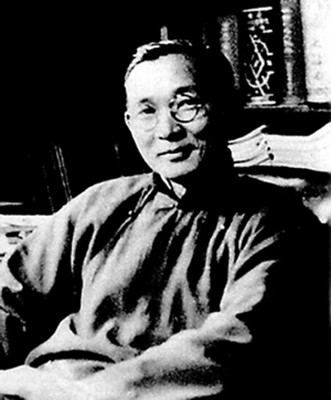For this reason,and out of consideration for the utmost rightness and cleanliness in preparation, Chinese writers on tea have always insisted on personal attention in boiling tea, or since that is necessarily inconvenient, that two boy servants be specially trained to do the job.
因为这个理由,因为要顾到烹时的合度和洁净,有茶癖的中国文士都主张烹茶须自己动手。如嫌不便,可用两个小童为助。
Tea is usually boiled on a separate small stove in the room or directly outside,away from the kitchen.
烹茶须用小炉,烹煮的地点须远离厨房,而近饮处。

The servant boys must be trained to make tea in the presence of their master and to observe a routine of cleanliness, washing the cups every morning (never wiping them with a towel),washing their hands often and keeping their fingernails dean.
茶童须受过训练,当主人的面前烹煮。一切手续都须十分洁净,茶杯须每晨洗涤,但不可用布揩擦。童儿的两手须常洗,指甲中的污腻须剔干净。
"When there are three guests, one stove will be enough, but when there are five or six persons, two separate stoves and kettles will be required, one boy attending to each stove, for if one is required to attend to both, there may be delays of mix-ups."
“三人以上,止爇一炉,如五六人,便当两鼎, 炉用一童,汤方调适,若令兼作,恐有参差。”
True connoisseurs, however, regard the personal preparation of tea as a special pleasure.
真正鉴赏家常以亲自烹茶为一种殊乐。
Without developing into a rigid system as in Japan, the preparation and drinking of tea is always a performance of loving pleasure, importance and distinction.
中国的烹茶饮茶方法不像日本那么过分 严肃和讲规则,而仍属一种富有乐趣而又高尚重要的事情。
In fact, the preparation is half the fun of the drinking, as cracking melon-seeds between one's teeth is half the pleasure of eating them.
实 在说起来,烹茶之乐和饮茶之乐各居其半,正如吃西瓜子,用牙齿咬瓜子壳之乐和吃瓜子肉之乐实各居其半。
Usually a stove is set before a window, with good hard charcoal burning.
茶炉大都置在窗前,用硬炭生火。













